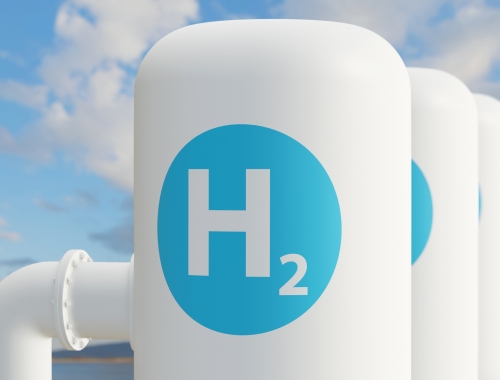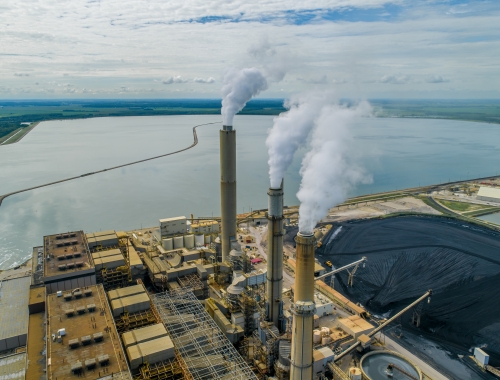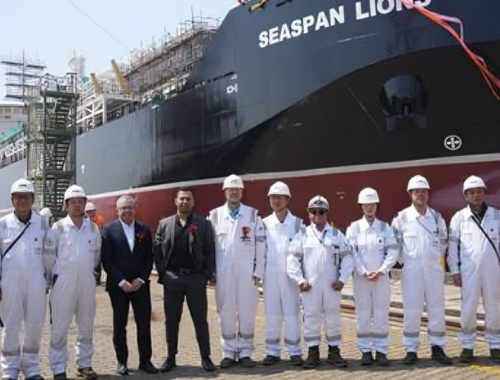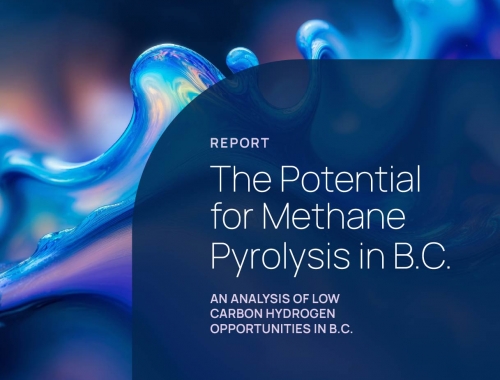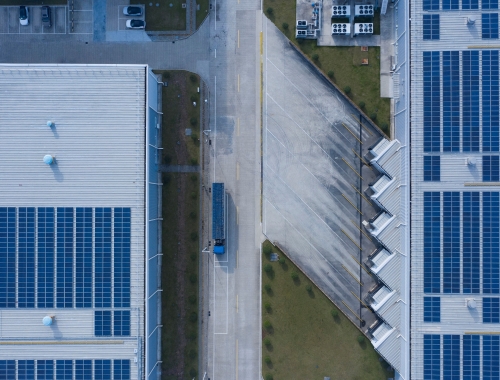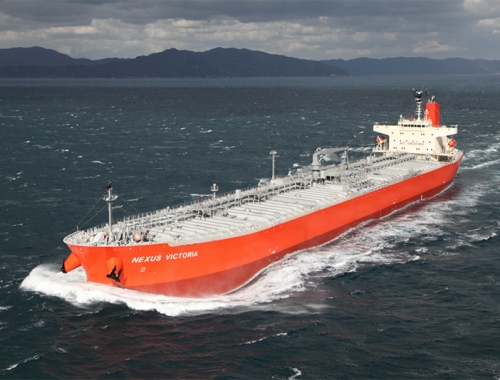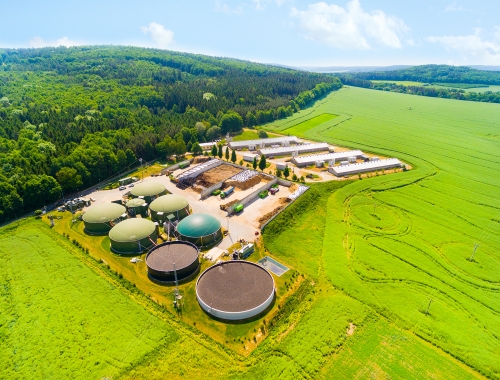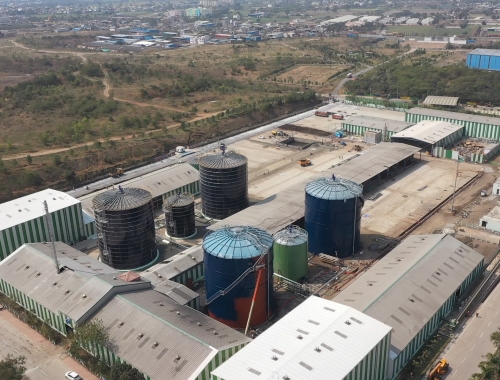Water, water – everywhere
SUMMARY
Tourmaline Oil, Canada’s largest natural gas producer, has mastered the art of minimising fresh water use to keep the gas flowing. [All images: Tourmaline Oil]
By Tourmaline OilBefore water conservation and recycling became a major priority for the industry, the team at Tourmaline Oil recognized proper water management would be vital to Tourmaline’s success. So they set an ambitious goal: eliminate freshwater use across the company’s core operating areas. Management believed reducing the company’s reliance on fresh water would not only be better for the environment but would also provide water security.
Their foresight, and the investments they made to build an extensive network of water-recycling infrastructure, paid off. Today, Tourmaline recycles approximately 95% of the water used in completion activities.
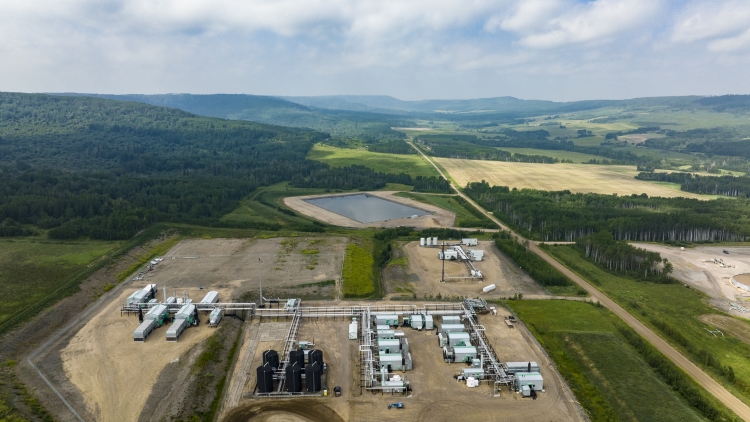
Compressor station and produced water pond at Tourmaline’s Sundown facility in northeast BC.
“Our team saw the big picture because, in the short term, it can feel more cost intensive to recycle water,” says Chris Martel, the company’s team lead of water operations. “But we take on that additional cost because it’s the right thing to do and ensures we have water access as we grow, which in turn creates cost savings over the long term.”
And the company is growing – its production and the absolute water volume needed to keep pace with that production – but the water-recycling target remains the same.
Doing more with less
Tourmaline is now Canada’s largest natural gas producer and North America’s fifth largest but boasts the lowest non-saline water use intensity amongst its peers in Alberta. Based on the Alberta Energy Regulator’s annual reporting of fresh water (non-saline) use per year, Tourmaline uses the least amount of fresh water among companies producing more than 20mn barrels of oil equivalent (boe)/year within the hydraulic fracturing technology sector. Though similar information is not available in British Columbia, the company estimates its performance is even better there thanks to geographically concentrated operations and more water recycling infrastructure.
Tourmaline’s industry-leading water management infrastructure makes it all possible. In total, the company has constructed or acquired over 476,500 m3 of treatment and storage capacity, owns 10 water source/recycling facilities, and was the first operator in Alberta to receive regulatory approval to construct and operate engineered containment ponds for recycled water storage.
The company has also built over 120 km of water-pipeline infrastructure, which removed more than 42,000 water transportation trucks from the road in 2022 alone – a change that has reduced not only Tourmaline’s costs and emissions but improved road safety for the surrounding communities.
In addition to generating lower operating costs for the company, Tourmaline’s many water-recycling initiatives have significantly reduced its reliance on fresh water.
“Fresh water is becoming increasingly harder to obtain, so having a water management plan in place is important,” says Sarah Belak, Tourmaline’s water coordinator. “If access to fresh water was significantly reduced, you couldn’t start producing at our scale. These projects take years, so we’re building ourselves up to sustain water access in the future.”
In addition to helping secure water access for Tourmaline’s operations, Martel, Belak and their team have been advocating on behalf of the industry for change in Alberta, a jurisdiction that previously didn’t allow the type of infrastructure needed for large-scale water recycling programs.
Bigger is better
After conversations with the regulator to explain the need for larger-scale water storage in volumes that would enable companies to use recycled fluid for hydraulic fracturing, Tourmaline was granted in 2014 the first ever storage approval for above-ground, synthetically lined, walled storage systems larger than 3,000 m3.
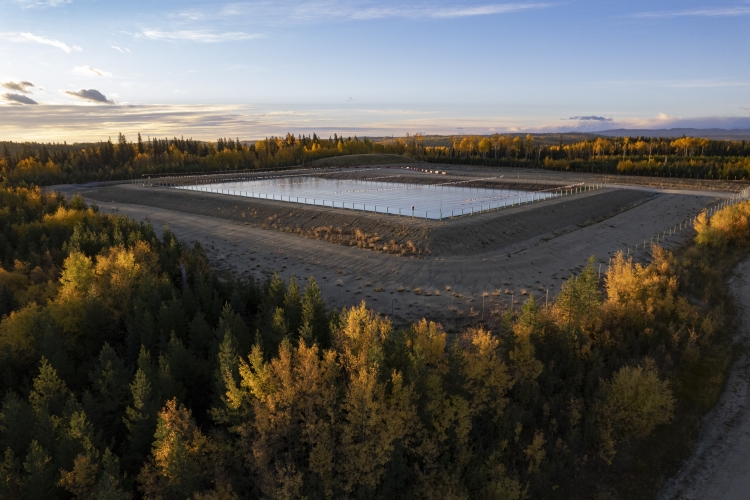
Produced water pond at Tourmaline’s Banshee facility, located in central Deep Basin, near Edson, Alberta.
The team has continued to push for larger-scale storage approvals and succeeded – today’s regulation allows for 6,600 m3 of water storage on site for short-term use. Tourmaline relies on these large, flexible storage systems to provide enough recycled fluid for hydraulic fracturing, a development that has drastically reduced its freshwater needs and paved the way for other companies to follow suit.
“We’ve made tangible change in regulations to promote recycling,” Belak says. “And we keep trying to drive change through Tourmaline’s leadership in this realm.”
In addition to securing large-scale water storage for short-term use, Tourmaline was the first operator to push for approvals to build engineered containment ponds in Alberta for long-term storage of recycled fluid. After many years of working with the regulator and advocating for the project, the company’s Banshee water pit was approved in 2016.
With the approvals needed to build large, short-term storage for frac operations and longer-term storage at Tourmaline’s production facilities to capture produced fluid and to act as a hub for frac flowback, the company’s recycled water use program took off.
Every year since, Tourmaline has increased the use of recycled fluid by growing its water infrastructure in each asset. Though a significant percentage of fluid used for hydraulic fracturing is already recovered and reused, the team is dedicated to hitting the goal and eliminating all fresh water use in completions activities throughout Tourmaline’s core operating areas. And through their participation and leadership in multi-operator water-sharing associations, they’re also collaborating with producers in Alberta and British Columbia to share produced and flow-back water to maximise the efficiency of industry’s water use and minimise its reliance on fresh water.
These many initiatives are driving progress for both the company and its peers, Martel explains. “Water is a complicated resource to manage on the front and back end, so you have to be thoughtful about it,” he says.
It’s a challenge the Tourmaline water crew embraces, Belak adds. “I am passionate about working with water because it’s dynamic and ever-changing, and collaborating with other companies for the betterment of our industry is exciting.”
This feature was provided by Tourmaline Oil as a sponsor of Gas Pathways.

